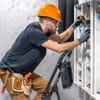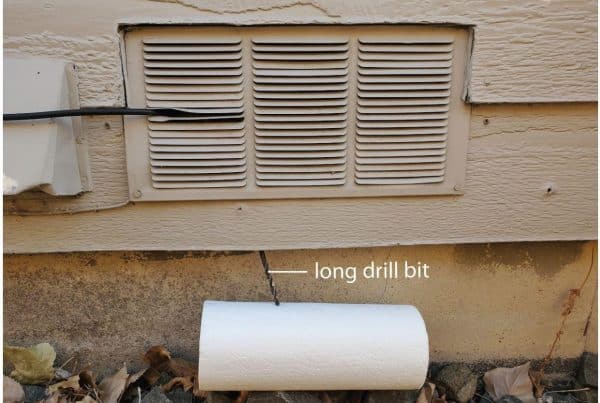With summer right around the corner, now is as good a time as any to think about the state of your residential air conditioning. Although it may be in great shape now, it’s always recommended to give things a good thorough check before it has to work hard under the duress of hot days.
If you’re not familiar with the basics of residential air conditioning and what you, as a homeowner, should be aware of – not to worry – we’ve got some HVAC tips for homeowners that are sure to educate you on the ins and outs of AC units.
#1 – New Air Conditioner Units are Much More Efficient
It probably comes as no surprise to hear that a new air conditioning unit is going to be far more efficient than an old one. Air conditioning units are sort of like cars in that way. The cars from twenty years ago were way less fuel-efficient than they are today. They also created more emissions.
It’s the same story with air conditioning units. To give you some background on this, HVAC efficiency is measured in Seasonal Energy Efficiency Ratio (SEER) ratings. Older air conditioning units tend to have much lower SEER ratings than modern ones, which means the one you have now may not be up to par from a SEER standpoint.
The U.S. Department of Energy has set the minimum standard SEER rating of 13, and many of the older models clock in around 8 or 9. For reference, the highest possible rating is 25 for standard split systems.
Go with a new air conditioner if you want to save on your utility bills. Not only do they make residential air conditioning less costly, they also run less of a risk of breaking down when you need them the most.
#2 – When it’s Time to Replace Your Air Conditioning, You’ll Usually See Signs
It’s tough to know when to replace your residential air conditioning unit. Is it five years? Ten years? The truth is, most residential air conditioners are judged on a case-by-case basis. Different models run for different lengths of time. How well you’ve maintained your residential air conditioner also plays an enormous factor. What we can tell you for sure is that when your air conditioner needs replacement, there are usually some telltale signs beforehand that you’ll notice. They include:
- A rising energy bill that makes huge jumps
- You notice strange odors around the home
- Your air conditioner still uses R-22 refrigerant (aka freon), which was phased out starting in 2010
- Your air conditioner is old (ten years or more)
If one or more of these apply to your unit, then it’s time to get a quote on a new one to replace it. Do it before your current one malfunctions. You don’t want to be without AC.
#3 – Residential Air Conditioners Need to be Serviced and Maintained
Many people don’t think to pay attention to their residential air conditioner unless something is wrong with it. As a homeowner, it’s in your best interest to be proactive when it comes to your AC unit. That means getting it professionally serviced regularly and performing the basic maintenance tasks to keep it in tip-top shape.
The simple tasks you can perform yourself include:
- Change your filters often to avoid dirty air and pollen issues
- Clear away debris that has accumulated around your unit
- Regularly clean your air vents
The tasks for a professional service technician include:
- Cleaning the air ducts
- Performing a seasonal check-up (at least one before summer and one before winter)
- Checking the coolant level
- Inspecting the base pan and cleaning the drain openings
- Checking and cleaning the system coil
- Checking the fan motor and blades
- Checking the control box
- Making sure contactors, circuit boards, and relays are in good shape
- Inspecting the compressor and tubing
- Cleaning the evaporator coil and drain inside the home
How to Schedule an Air Conditioner Check-Up
If you’ve been noticing that your residential air conditioning hasn’t been performing at its best or you’re simply overdue for a checkup, the good news is that this can be easily arranged. You can simply perform a Google search for “air conditioning repair near me” or “air conditioning service near me” and that should get you started.
Remember, getting an AC serviced is far less expensive than getting it repaired, so it’s best to be as proactive as possible when it comes to your residential air conditioning.








